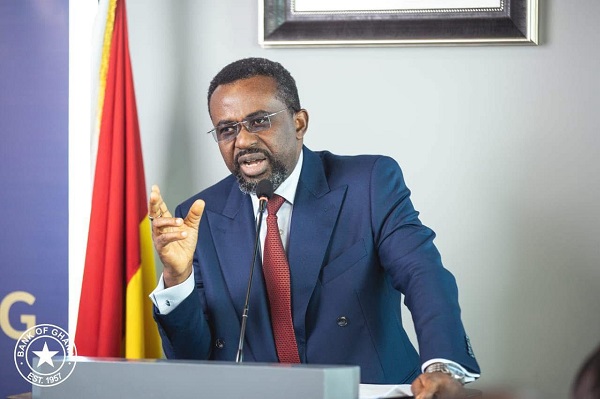The recent assessment by the global ratings agency S&P describing Ghana's economy as "stable but fragile," underscores the need for policymakers to tread carefully to sustain the current growth trajectory.
As we navigate the complexities of our economic landscape, it is imperative to acknowledge both the progress made and the challenges that lie ahead.
The recent uptick in gold export receipts and improved foreign exchange reserves are positive indicators, driven in part by the government's efforts to regulate the artisanal mining sector and boost export earnings.
However, underlying vulnerabilities threaten to undermine these gains. High inflation, stubbornly above the Bank of Ghana's target band of eight plus or minus two, continues to erode consumer purchasing power and business profitability.
The cedi's short-term stability, attributed to the managed float regime, may not persist as structural imbalances and fiscal constraints reassert themselves. Moreover, Ghana's debt burden remains substantial, with interest costs projected to remain elevated, posing a risk to currency stability and long-term fiscal consolidation.
The country's ongoing IMF-supported fiscal reforms aim to strike a balance between capital investments and critical social spending, but tight fiscal space constrains policymaking.
In this context, S&P's upgrade of Ghana's credit ratings from 'SD' to 'CCC+' reflects progress in restructuring debt. The debt overhaul has reduced Ghana's debt service burden, but even modest currency depreciation could quickly inflate debt service obligations and fiscal deficits. Policymakers must prioritise measures to support the private sector, enhance revenue mobilisation and promote sustainable economic growth.
The recent surge in foreign exchange reserves, driven by a favourable current account balance, presents an opportunity to rebuild buffers and stabilise the economy. With the current account recording its largest surplus on record in 2024, reaching $3.58 billion or 4.4 per cent of GDP, Ghana can leverage this momentum to drive economic growth.
The value of gold exports rose by 53.2 per cent due to increases in both volume and price, while net remittance flows increased 34.1 per cent.
However, the economy still faces significant challenges. The banking sector, though recapitalised in 2023, shows signs of strain, with non-performing loans rising to 21.8 per cent by end-2024.
The sector remains adequately capitalised, but credit risk persists. Furthermore, political uncertainty and social policy developments, including the controversial "Promotion of Proper Human Sexual Rights and Ghanaian Family Values" bill, pose potential headwinds for the economy.
For the Graphic Business, as Ghana navigates this delicate balance, policymakers, businesses and citizens must work together to address the country's economic challenges. By prioritising sustainable economic growth, promoting economic diversification and maintaining fiscal discipline, we can build a more resilient economy and secure a brighter future for generations to come.
To achieve this, the government must implement structural reforms to improve the business environment, enhance infrastructure, and promote private sector growth. Additionally, efforts to improve revenue mobilisation and reduce debt vulnerabilities are crucial to ensuring long-term fiscal sustainability.
The private sector also has a critical role to play in driving economic growth and job creation. Businesses must invest in innovation, productivity and human capital to remain competitive in a rapidly changing global economy.
Ultimately, Ghana's economic future depends on the collective efforts of its citizens, policymakers and businesses. By working together, we can overcome the current fragilities and build a more stable and prosperous future for all Ghanaians.
The challenge ahead is daunting, but with prudent economic management and a shared vision for the future, Ghana can achieve sustainable economic growth and improve the living standards of its citizens.
